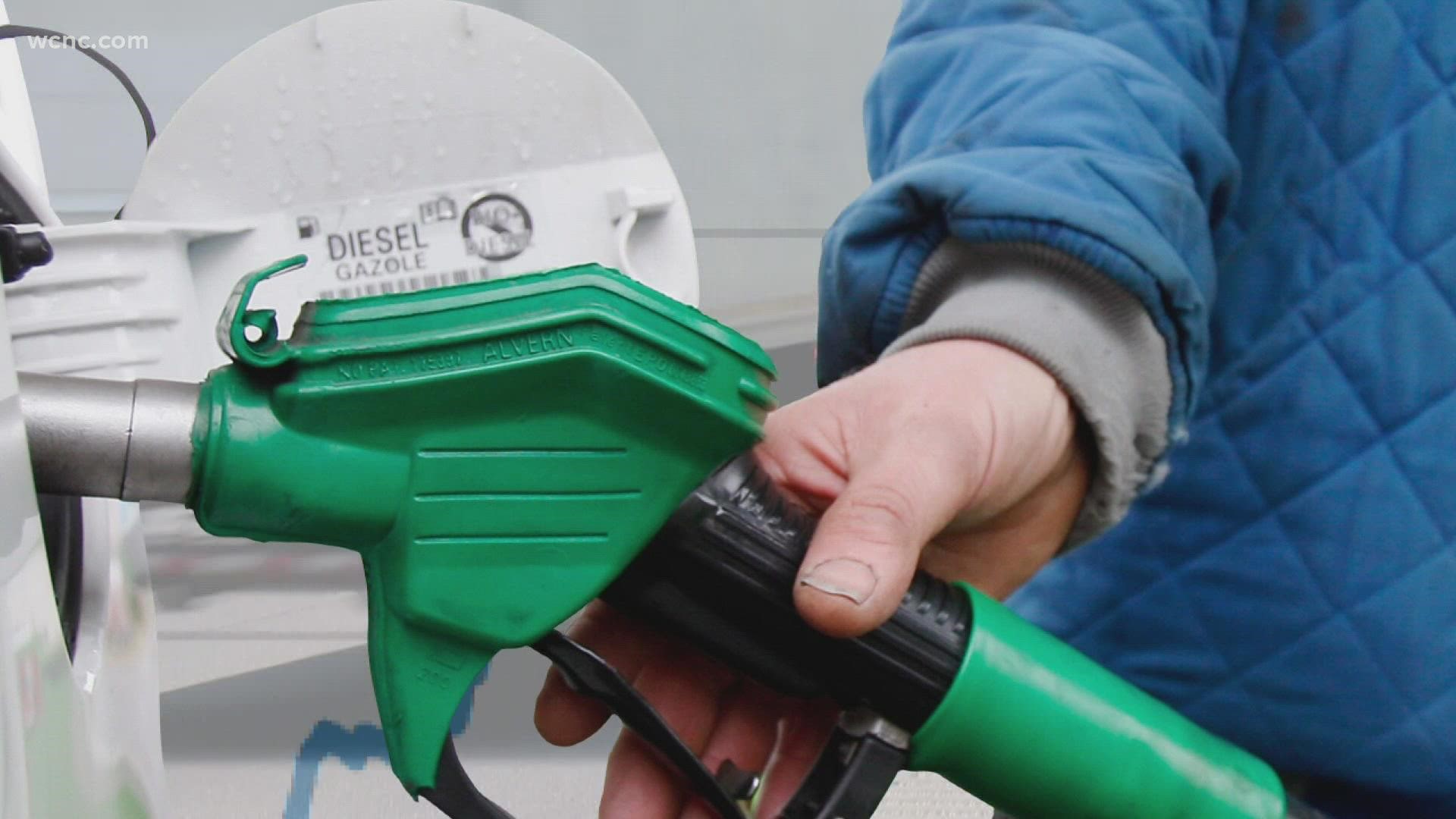CHARLOTTE, N.C. — The average price for a gallon of gas in North Carolina hit a record high of $4.19 last week, and although prices are dropping penny by penny, drivers are paying a lot more than they were just a few weeks ago.
At what point do the rising prices change people's behavior and driving habits?
Experts say a lot of it depends on someone’s personal situation, but some have already changed where they’re going because of the high price of gas.
Whether it's work, school or grocery shopping, it's difficult for most people to avoid getting in the car every day. With gas prices slowly coming down from a record high, when will Americans say enough is enough?
“People’s consumption of gas does not change as prices increase as much as we think they would," Mason Jenkins, a clinical assistant professor marketing at UNC Charlotte, said. "There are a few reasons why this is understandable. The type of car that people drive the distance they drive to work are factors they can't change in the short term."
Jenkins says areas that have more access to public transportation, like light rails or buses, are where more people have the ability to make changes to their gas consumption. For many, that means picking and choosing where they’re able to go on their tank of gas.
“Now I’m going to be able to just work and go home," Kianna McDuffie said. "That's it, instead of running errands like I usually do."
Experts say history can give an indication of what the breaking point may be.
“We saw $4 a gallon back in 2008, and back then, people really started to change their habits in a significant way," Connel Fullenkamp, a professor of economics at Duke University, said. "I think we've witnessed that. Gas prices have gone up so fast, it's gone up more than 50% since this time last year. If this doesn't change people's behavior in a relative hurry, I don't think anything else will."
Gas prices are slowly coming down but it won’t happen quickly.
“The market is very volatile right now. Just because prices are falling, that usually doesn't translate to what we see at the pump," Tiffany Wright with AAA of the Carolinas, said. "Prices shoot up like a rocket. They, unfortunately, fall like a feather."
Time will tell but Fullenkamp thinks the worst could be in the rearview mirror.
“I really don’t see that oil prices are going to spike a whole lot more,” he said.
Fullenkamp says that's partly because more oil will become available.
“Many times, when oil prices really rocket like they have in the last few weeks, a lot of production comes online that is unanticipated,” Fullenkamp said. “It’s really hard as an oil producer to resist $120 a barrel oil.”
Plus, spring break travel season means demand may not drop. Wright said they haven’t seen people changing their plans just yet.
“For many people, you have to consider this might be their first big trip in two years,” she said. “A lot of people had their trips canceled last year, they had them canceled the year before and a lot of people are saying this year I am not going to cancel my trips in 2022.”
Some people may be thinking a long-term solution to this problem is switching over to an electric vehicle. But even the materials needed to make those cars are in short supply because of all of the disruptions to the supply chain from the pandemic and the war in Ukraine.
Contact Chloe Leshner at cleshner@wcnc.com and follow her on Facebook, Twitter and Instagram.

